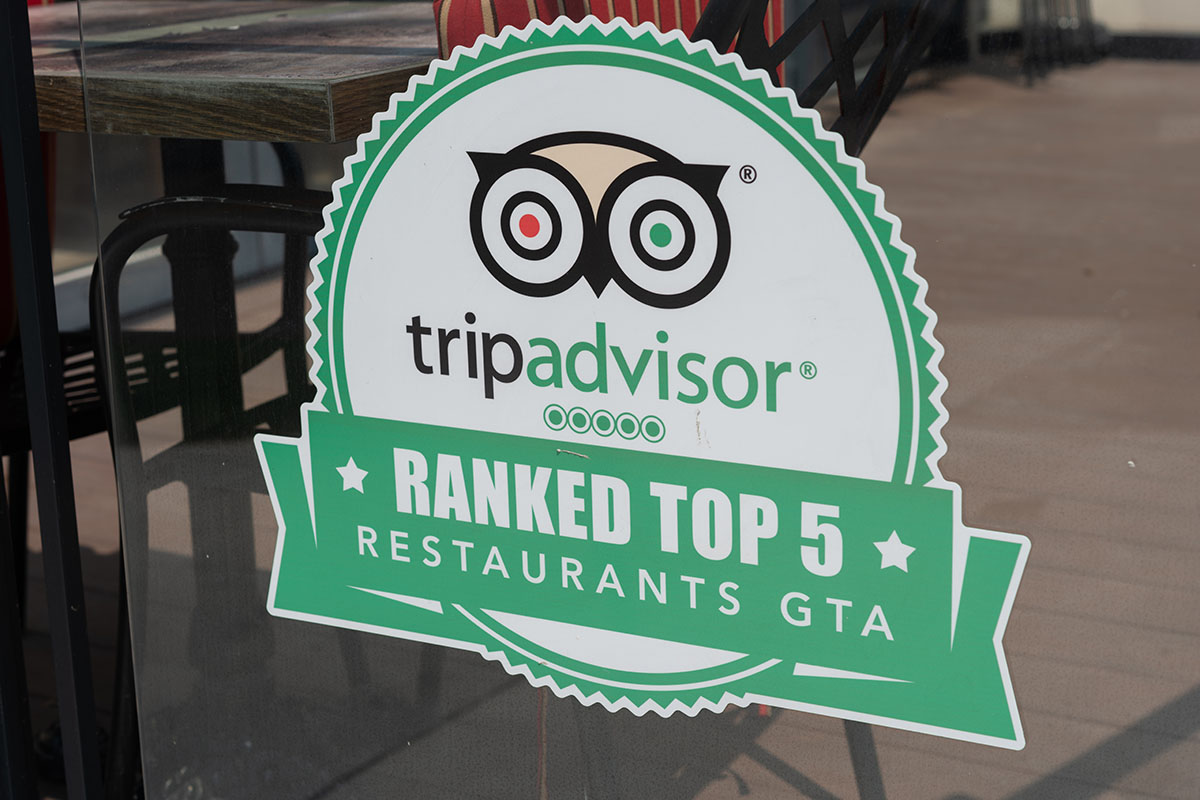How Homesharing Hit the Corporate Travel Mainstream

Skift Take
During the bulk of its decade-long existence, Airbnb faced an uphill battle getting the corporate travel ecosystem to embrace its homeshare products. Recently, though, the company has made strong inroads through its Airbnb for Work platform, getting travel managers onboard and encouraging hesitant business travelers to give it a try.
Earlier this week, Airbnb for Work announced it had integrated Airbnb Experiences and curated lists of meeting-appropriate homes into its business travel booking platform. Bringing increased choice to business travel may have temporarily broken the minds of some travel managers and organizations, but the opportunity for a more authentic business travel experience has come to resonate across the sector.
"Choice is a good thing for any individual," said David Holyoke, global head of Airbnb for Work. "You can be a family traveler, you can be a business traveler, you can be a solo individual traveler or travel with friends. You can be a luxury traveler. You can be all of those things. I think too many times travel companies try to segment that and not understand that's really one human being you need to touch based on use cases. The advancement of personalization will drive things forward."
Skift spoke to Holyoke last month at the Global Business Travel Association convention in San Diego about the ways in which Airbnb has moved into the corporate travel mainstream, the challenges of bringing companies both large and small onto the platform, and how the lines between leisure and business travel continue to blur at a rapid pace.
Don't miss Airbnb strategic advisor Chip Conley on stage at Skift Global Forum in New York City
This interview has been edited for clarity and length.
Skift: Airbnb has been touting a corporate travel growth story since launching its dedicated business travel platform. What kind of adoption have you been seeing?
David Holyoke: So two years in a row, we've seen 300 percent. About 700,000 companies now booking with Airbnb for work and nearly 300,000 companies actively engaged. That's where we've got a stakeholder within that company is setting up obviously policy parameters, working with us for promotions.
We're adding thousands of companies a week now and that's of all sizes. Whether that's [small businesses or] whether that be a large enterprise, I mean we're really coming out of them all from all angles.
Skift: Has getting a wider variety of enterprises using the platform shifted how business travelers actually plan and book trips involving Airbnb?
Holyoke: A year ago, the average length of stay for us was a little over six nights and about 60 percent had a weekend stay, so it was the classic leisure. The downtime and the work time. What's been interesting in the year since, is that's gone down to about five nights, and our fastest growing segment is under three nights now.
As they get comfortable with the platform, then they're starting to say, "I can use this for my short travel." Because I still only need for two nights, but I still want to have a local experience when I'm not at work. Maybe I'm meeting with friends. Maybe I want to experience a side of the city other than the central business district. So people are saying that I can do that and condense the amount of time versus also a long period of time.
It doesn't mean that longer-term stays still are not important for us. We're very very focused on relocations and mobility. Additionally, we're seeing teams. Teams traveling quite a bit. Two to three people in a listing having their own private space, private room, private bath. Having a common area. Great for collaboration. Maybe a meeting happening there but then still having your own private area. Not only saves the company a lot of money but it also creates a level of engagement and connectivity between employees that I think it has a lot of benefits in the workforce.
Skift: Well, business travel should be fun! What about you guys look at partnering with coworking spaces and that sort of stuff? How do you envision the future of having a platform where business travelers can pick and choose sort of what kind of thing they want to add on and have that affects the experience.
Holyoke: Our early stage was really focused on new acquisitions, bringing a lot of companies in and scaling, which I think we're doing really well, and getting them engaged. Now, we're bringing them through the activation, getting them onboard, we're working really on specifically targeted use cases with companies and that's helping evolve the product further.
So if you're focused in the relocation space, understanding what are the needs of a family that is relocating for a job and what are the benefits and services that we can help bring to help them acclimate into that neighborhood? Whether that be a traveling spouse, whether that be kids that are coming in. We're definitely thinking about that in a holistic way. And you can take that through many other use cases as well, so there will be a lot more for that to evolve.
Skift: How has the conversation shifted as companies that once avoided dealing with Airbnb have come to embrace it?
Holyoke: In the almost two years I've been here, I think the conversations have changed quite a bit. The beginning was there was a lot of denial of this was happening, right? There were thousands of people in their organization that were building out a business profile, marking things as a business trip, and now we're being validated on the other end that these were actually employees traveling for work.
Once getting through that and getting through a lot of the questions around what we do around safety and around building trust. How we protect data, you know, we really did that through content marking, we've done that obviously through the sales force, being engaged with them after product, that's helped change the conversation to today. Now, it's not a matter of is this happening, people know it's happening.
Now it's around how do we actually bring [companies] in and complement the product. So the conversations have changed quite a bit. I think it's also helped what we've done in the space. We integrated with duty of care providers, we've integrated with major TMCs for reporting purposes to give them visibility, and now with the Concur integration, people can add a level of control that they would have with traditional accommodations with Airbnb.
And then we launched what we call Homepage, that's basically a microsite for companies to allow their employees to enter a little smaller version of Airbnb where they can put predisposed filters and controls in place, for certain use cases they want. I think we're giving more and more flexibility to the larger companies and that's building further trust.
Skift: The rise of Airbnb, it almost goes without saying, has dovetailed with major shifts in traveler behavior. They want to travel for business more like they do for vacation. How do these trends impact you on the Airbnb for Work side of things?
Holyoke: Looking at the trends of the modern employee, first of all, they view travel as a benefit, as a perk. It's not a hassle, it's not a headache.
They generally want to extend their trip. They travel more often, they stay longer, and they definitely bring the consumerization of travel in. It's interesting with this competition for talent that's out there, especially with so many people becoming freelancers and contractors, where you're seeing employees come into organizations and advocating for what's your policy, what am I allowed to do, and companies realizing to be competitive that they have to adapt.
The other day we were talking to a professional services firm and we were talking about another technology company in the Bay Area as well. The average age of the employee at that professional services firm, which has been around for 120 years, was 29. The average age of the people in the tech company that's been around for 12 years was 27. The companies might be fundamentally different from when they were built and in what their business models are, but the people inside those companies are very much similar in many ways.
There's more and more visibility and awareness. Companies' and travel managers' automatic notion is that the workforce is changing, just as online adoption was the Gen X-ers' thing, right? The experience side, the consumerization of travel is the millennials. Centennials will come in, they're starting college, they will come in and they will put their stamp on the workforce as they enter.
Skift: I feel old. I used to be a young person two years ago. How are you looking at enabling business travel choice within the established methods of some of these companies?
Holyoke: Choice is a good thing for any individual. You can be a family traveler, you can be a business traveler, you can be a solo individual traveler or travel with friends. You can be a luxury traveler. You can be all of those things. I think too many times travel companies try to segment that and not understand that's really one human being you need to touch based on use cases. The advancement of personalization will drive things forward.
It creates [engagement for some travel managers] experiencing it for the first time. For others, they've used it in their personal lives and some of them are hosts. It's amazing how many travel managers are on our platform that actually host as well. I think it's just coming around and understanding and also just that choice and variety.
You're putting a big emotional toll on people to travel for work. At the end of the day, you want someone to be highly engaged and productive on that trip. This is something they feel is a benefit, something they want to do, so let it complement your program, put some policies around it, parameters around it. That's the responsible thing to do for any organization but create an environment where there is more choice in flexibility.
Don't miss Greg Greeley, president of Airbnb Homes, on stage at Skift Global Forum in New York City




